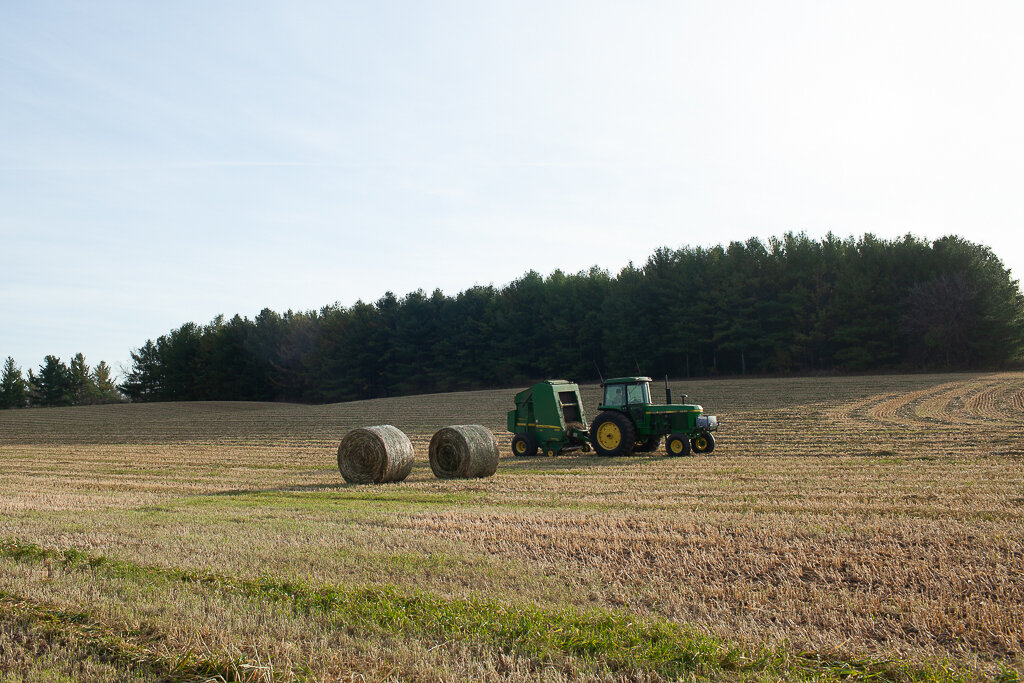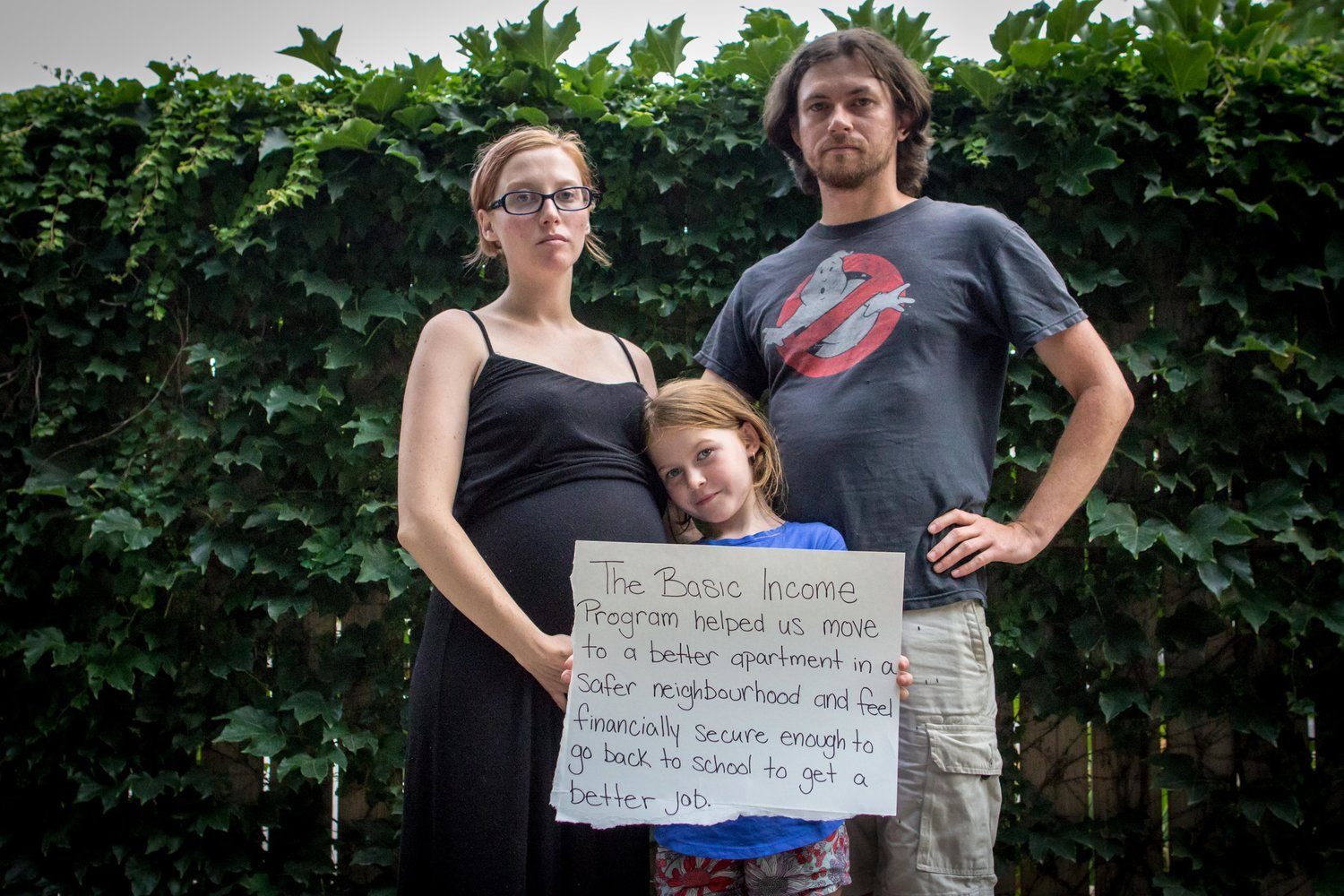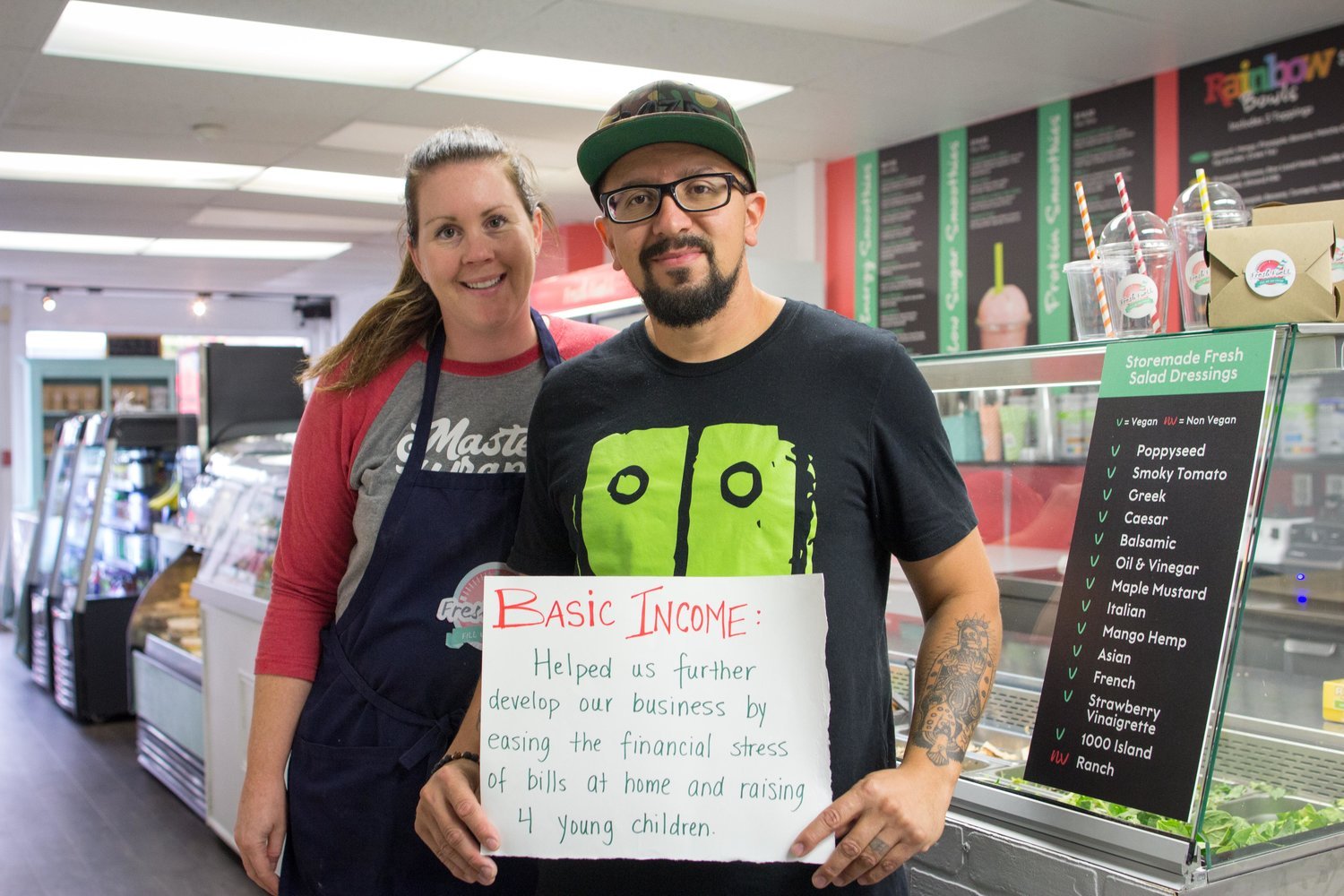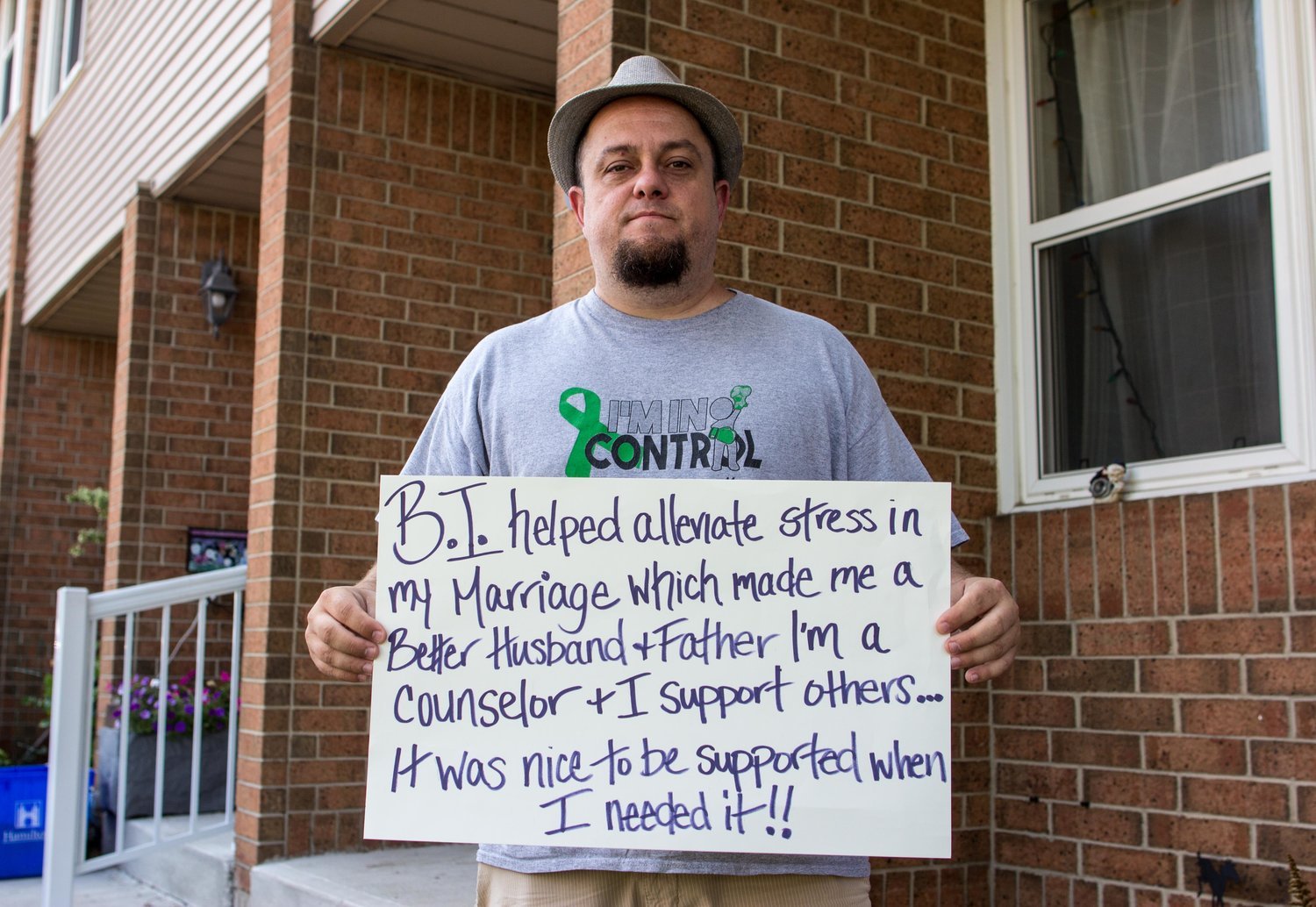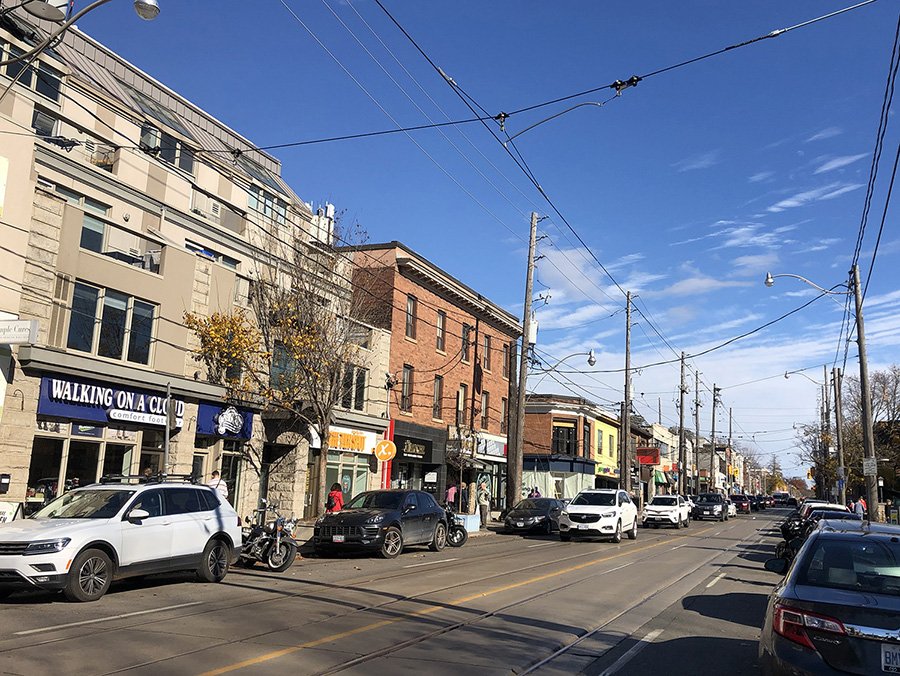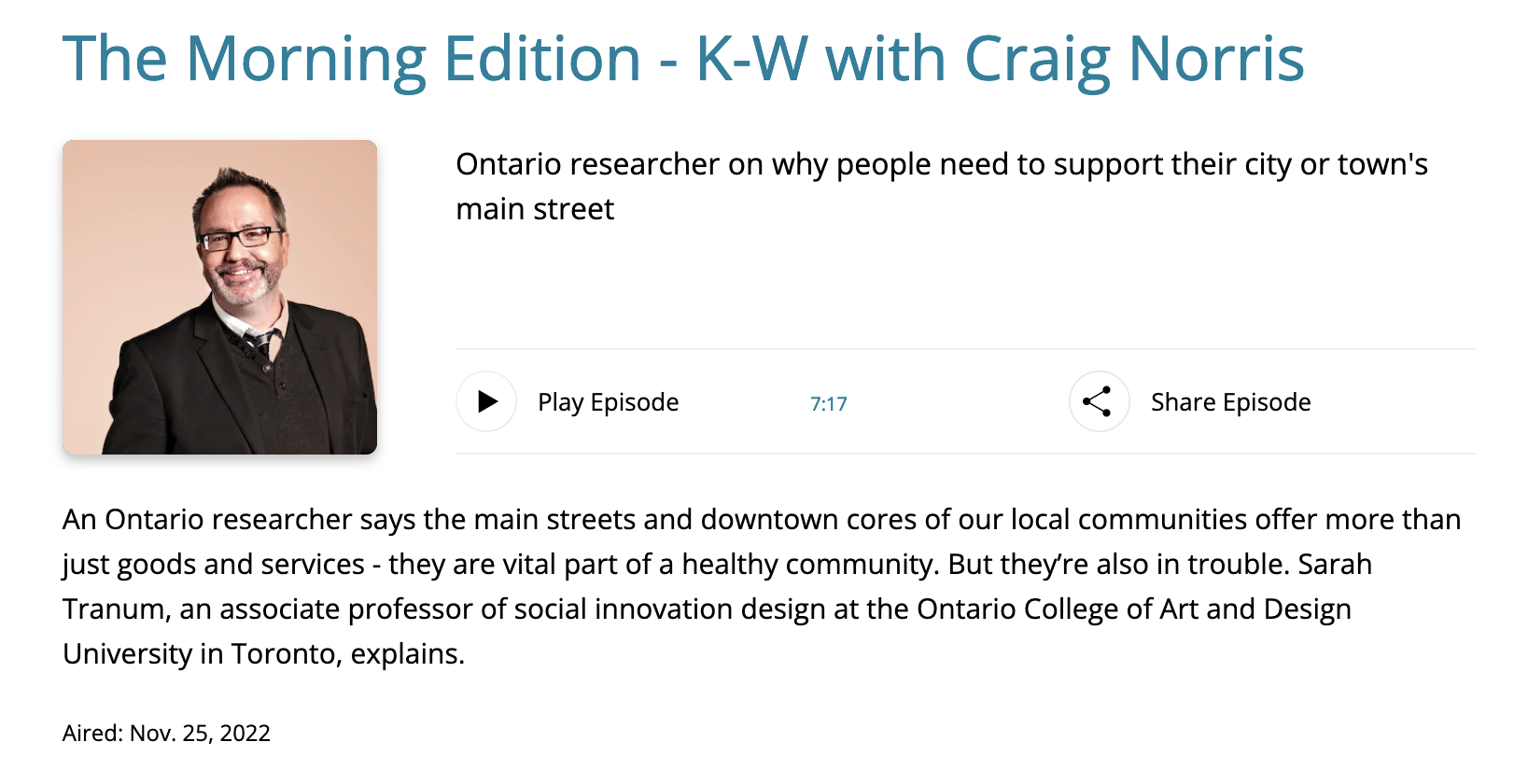
Podcast
Listen to a podcast series produced by TrickleUp Design, called Designing a Humane Future. Hosted by social innovation designer and TrickleUp founder, Sarah Tranum, this podcast explores how we can actively engage in imagining and designing a future that is more equitable, intentional, and humane. Episodes in this series feature interviews with thought leaders in the food system, healthcare, housing, business, community building, media, and more. Listen to the series episodes here or subscribe at Apple Podcasts, Spotify, Amazon Music, Goodpods, or Podbean.
Welcome to Designing a Humane Future Podcast
Check out Designing a Humane Future, a podcast series that explores some of the most complex challenges we face and examines them through a design and systems thinking lens. We will talk with people who are imagining new approaches, creating new collaborations, and building new structures that can usher in a better future.
Check out Designing a Humane Future, a podcast series that explores some of the most complex challenges we face and examines them through a design and systems thinking lens. We talk with people who are imagining new approaches, creating new collaborations, and building new structures that can usher in a better future.
Creating villages of care for the elderly to live dignified lives, examining the role of women in reshaping business and politics, redefining efficiency and the next generation of businesses, and looking to circular, regenerative models for our food needs are just a few of the topics to be discussed in the coming episodes.
Join the conversation as we explore how we can redesign capitalism: to work within the system to make it fairer, kinder and more supportive of a life we want to live now and going forward. Listen here or subscribe at Apple Podcasts, Google Podcasts, Spotify, Amazon Music/Audible, or Podbean.
Episode 1: Designing a Circular, Regenerative Food System
In this pilot episode in the series, we look at the food system, the challenges that existed well before the pandemic and which have been magnified during it. We examine some of the fundamental issues underpinning the modern food system. We learn about the various stakeholders working to realign the production, distribution, and consumption of food with the natural cycles so that we can meet our food needs while helping to heal the earth and our connection to it.
Source: Justin Langille, www.justinlangille.com
In this pilot episode in the series, we look at the food system, the challenges that existed well before the pandemic and which have been magnified during it. We examine some of the fundamental issues underpinning the modern food system. We learn about the various stakeholders working to realign the production, distribution, and consumption of food with the natural cycles so that we can meet our food needs while helping to heal the earth and our connection to it.
The focus is an exciting pilot project, called Our Food Future, taking place in Canada, in the City of Guelph and the surrounding Wellington County, which are located in the province of Ontario. We hear from a number of stakeholders working to develop Canada’s first circular food economy, which is poised to become a new model for other communities across Canada and beyond.
Learn more about the podcast and those interviewed by visiting the following links:
Our Food Future
https://foodfuture.ca/our-food-future
Wellington Federation of Agriculture
https://www.wfofa.on.ca/
Janet Harrop, Harrcroft Acres
https://harrroft-acres-limited.business.site/?utm_source=gmb&utm_medium=referral
Nathan Smith, Winterhill Farm & Garden
https://winterhillfarmandgarden.com/
Val Steinmann, Heartwood Farm & Cidery
https://heartwoodfarm.ca/
Cher Mereweather, Provision Coalition
https://provisioncoalition.com/
Barb Swartzentruber, Smart Cities Office, City of Guelph, Our Food Future
https://guelph.ca/city-hall/city-administrators-office/smart-cities-challenge/
Richard Preiss, Escarpment Laboratories
https://escarpmentlabs.com/
Court Desautels, The Neighbourhood Group
https://www.neighbourhoodgroup.com/restaurants
Lynn Broughton, Taste Detours
https://tastedetours.ca/
Brian Watson, Kortright Presbyterian Church
https://www.kortrightchurch.org/
Emily Huddart Kennedy, Associate Professor, Department of Sociology, University of British Columbia
https://sociology.ubc.ca/profile/emily-huddart-kennedy/
Ellen MacArthur Foundation
https://www.ellenmacarthurfoundation.org/
MEDIA about Episode 1
Read an article written by Sarah that complements this podcast episode, called “A circular food system can withstand crises like COVID-19 — and provide delicious meals” published in The Conversation.
Listen to a radio interview with Sarah on CKNW 980 Weekend Mornings out of Vancouver.
Episode 2: Homelessness and Housing as a Right
This two-part episode offers an in-depth understanding of homelessness and housing as a right. In Part 1, we explore the systems challenges of homelessness and interventions like Housing First, as well as initiatives striving to prevent and address youth homelessness and Indigenous homelessness. In Part 2, we learn about the socially innovative solutions that are working and the barriers that remain to meaningfully redesigning these systems to help eradicate homelessness.
Source: Canadian Observatory on Homelessness, The Homeless Hub, “Coming of Age” report
This two-part episode offers an in-depth understanding of homelessness and housing as a right. In Part 1, we explore the systems challenges of homelessness and interventions like Housing First, as well as initiatives striving to prevent and address youth homelessness and Indigenous homelessness. In Part 2, we learn about the socially innovative solutions that are working and the barriers that remain to meaningfully redesigning these systems to help eradicate homelessness.
To better understand the complexities of homelessness, we look at the City of Hamilton as a case study. A once affordable city located on the western shores of Lake Ontario, Hamilton is now ranked the third most expensive city in North America. We examine various innovative pilot projects happening in and around this community, which has committed to ending chronic homelessness by 2025. We hear the voices of nine experts, working on homelessness in various capacities from the policy to the grassroots level, as we unpack the different perspectives and efforts underway to not just manage homelessness but to end it.
Learn more about those interviewed in this two-part episode by visiting the following links (in order of appearance):
Melanie Redman, President and CEO, A Way Home: Working Together to End Youth Homelessness Partnership; Implementation Director, Making the Shift Youth Homelessness Social Innovation Lab
https://awayhome.ca/
https://makingtheshiftinc.ca/
Amanda DiFalco, Deputy Director, Built for Zero Canada, Canadian Alliance to End Homelessness
https://bfzcanada.ca/
https://caeh.ca/
Stephen Gaetz, Professor and Research Chair in Homelessness and Research Impact, York University; President, Canadian Observatory on Homelessness; Research Director, Making the Shift Youth Homelessness Social Innovation Lab
https://www.yorku.ca/rightthefuture/stories/homelessness/
https://homelesshub.ca/
https://makingtheshiftinc.ca/
Jeff Neven, Executive Director, Indwell
https://indwell.ca/
Calogero Mattina, President, Hamilton Community Land Trust
https://www.hamiltonclt.org/
Marcie McIlveen, Outreach Co-Coordinator, Keeping Six Hamilton Harm Reduction Action League
https://keepingsix.org/
Yolisa de Jager, former Senior Project Manager of Homelessness Policy and Programs, City of Hamilton
https://www.hamilton.ca/city-initiatives/strategies-actions/homelessness-systems-planning
Erika Morton, Systems Planning Officer, Canadian Observatory on Homelessness
https://homelesshub.ca/
Sheryl Green, Manager of Housing & Homelessness Supports & Services, Hamilton Regional Indian Centre
https://www.hric.ca/
MEDIA about Episode 2
Read an article written by Sarah that complements this podcast episode, called “What if we treat homelessness like a pandemic?” published in The Conversation.
Episode 3: Care as We Age - Transforming Long-term Care
In this episode, we’ll focus on long-term care and how we can better support individuals as they age. Cracks in the long-term care system in Canada were visible long before the pandemic. COVID just further amplified the failures in a system meant to support and care for the most vulnerable. The question is: Will this finally be the impetus need for real change to happen? And if so, what will it look like and how do we get there?
In this episode, we’ll focus on long-term care and how we can better support individuals as they age. Cracks in the long-term care system in Canada were visible long before the pandemic. COVID just further amplified the failures in a system meant to support and care for the most vulnerable. The question is: Will this finally be the impetus need for real change to happen? And if so, what will it look like and how do we get there?
In this two-part episode, we will examine the overarching challenges of the long-term care system in Canada and will explore various innovative solutions aimed to provide appropriate care and good quality of life at various stages of aging. You will hear interviews with various stakeholders involved with approaches that offer care that is attuned to individuals’ needs at each stage of ageing.
Learn more about those interviewed in this two-part episode by visiting the following links (in order of appearance):
Dr. Samir Sinha
Peter and Shelagh Godsoe Chair in Geriatrics and Director of Geriatrics, Sinai Health and the University Health Network
Professor of Medicine, Health Policy, Management and Evaluation, University of Toronto and Adjunct Professor of Medicine Johns Hopkins University School of Medicine
https://www.sinaihealth.ca/team/dr-samir-sinha/
https://nationalseniorsstrategy.ca/about-us/
Louise Bardswich
Co-founder/owner, Golden Girls of Port Perry
https://goldengirlsportperry.ca/
JC Gilbert
Deputy Chief, Operations, County of Simcoe Paramedic Services
https://www.simcoe.ca/paramedicservices/Pages/Community-Paramedicine-Home-Visit-Program.aspx
https://youtu.be/6FAsCJoui1w
Dr. Mark Nowaczynski
Clinical Director, House Calls
Assistant Professor, Department of Family and Community Medicine, Faculty of Medicine, University of Toronto
https://www.seniorshousecalls.ca/
Candace Chartier
CEO, Providence Living
https://prcc.providencehealthcare.org/our-sites-services/providence-living-place-together-sea
Source: National Institute on Ageing, Ryerson University, “Enabling the Future Provision of Long-Term Care in Canada” report
MEDIA about Episode 3
Read an article written by Sarah that complements this podcast episode, called “Co-housing and dementia villages: Social innovations offer alternatives for long-term care“ published in The Conversation.
Listen to a radio interview with Sarah on Accessible Media Inc.’s (AMI) “NOW with Dave Brown” show (interview starts at 14:27).
Episode 4: The Future of Work
In this two-part episode, the focus is the future of work. In part one, we’ll explore how technology and the economic impacts of the pandemic are shaping jobs now and the opportunities in the future. In part two, we will focus on universal basic income as an innovation that can address uncertainties in the labour market and ensure everyone has the basics they need to live.
Source: Jessie Golem, Humans of Basic Income Portrait Series, https://www.jessiegolem.com/humans-of-basic-income
In this two-part episode, the focus is the future of work. In part one, we’ll explore how technology and the economic impacts of the pandemic are shaping jobs now and the opportunities in the future. You’ll hear from experts who help us unpack the current trends we are seeing in the labour market.
In part two, we will focus on universal basic income as an innovation that can address uncertainties in the labour market and ensure everyone has the basics they need to live. We’ll look at the impact of Ontario’s Basic Income Pilot and learn about how a proposed basic income plan can contribute to the Canadian economy.
The episode explores ways to build a post-pandemic economy that centres on making work more equitable, inclusive, and dignified. Learn more about those interviewed by visiting the following links (in order of appearance):
Creig Lamb
Co-Founder & Principal, Shift Insights
https://www.shiftinsights.ca/
Floyd Marinescu
Executive Director, UBI Works
CEO and Co-founder, C4Media
https://www.ubiworks.ca/
Anjum Sultana
Fellow, Public Policy Forum
Contributor, “Skills for the Post-Pandemic World: Scoping Report”
Co-Author, “A Feminist Recovery Plan for Canada”
https://www.anjumsultana.com/
Jessie Golem
Entrepreneur, professional writer, photographer, pianist, and activist
Creator, Humans of Basic Income portrait series
https://www.jessiegolem.com/
Wayne Lewchuk
Professor, School of Labour Studies, Department of Economics, McMaster University
Co-author, “Southern Ontario’s Basic Income Experience” report
https://socialsciences.mcmaster.ca/people/lewchuk-wayne
Episode 5: Supporting Main Street
This episode of the Designing a Humane Future podcast is dedicated to small businesses - to exploring the future of our Main Street shops and understanding ways to ensure they can continue to be part of our communities and our lives now and looking ahead.
Climbing business costs and shifts in the market accelerated by the COVID-19 pandemic are posing challenges to the future of small retailers along Main Street business areas.
Source: Sarah Tranum
This episode of the Designing a Humane Future podcast is dedicated to small businesses - to exploring the future of our Main Street shops and understanding ways to ensure they can continue to be part of our communities and our lives now and looking ahead. In this episode, we explore these possible future trends and learn from those involved in running and championing small business every day. We’ll look at the challenges facing small businesses and some of the solutions that are helping them to navigate the uncertainties now and that can allow them to thrive into the future.
Learn more about those interviewed by visiting the following links (in order of appearance):
Judy Morgan
Judy Morgan Consulting
https://www.linkedin.com/in/judy-morgan-7b47992/
Anita Agrawal
Co-author, “Out of Control”, Commercial Rent Report, February 2022
https://betterwayalliance.ca/wp-content/uploads/2022/02/BWA_Out-of-Control_-Why-Small-Businesses-Need-Urgent-Action-on-the-Commercial-Rent-Crisis.pdf
CEO, Best Bargains Jewellery
https://bbjw.com/
Aaron Binder
Director, Better Way Alliance
https://betterwayalliance.ca/
Chief Experience Officer, Segway Ontario
https://segwayofontario.com/
Chief Experience Officer, Go Tours Canada
https://www.gotourscanada.com/
John Kiru
Executive Director, Toronto Association of Business Improvement Areas
https://www.toronto-bia.com/
MEDIA about Episode 5
Read an article written by Sarah that complements this podcast episode, called “Saving Main Street: Local businesses need community support to stay afloat“ published in The Conversation.
Listen to a radio interview with Sarah on CBC’s “The Morning Edition - K-W with Craig Norris”.
Episode 6: What the World Needs Now…Feminine Leadership
This two-part episode explores the body of research on women, leadership, and systemic barriers that remain for women to reach parity with men. The aim is to find a working definition and understanding of how feminine leadership can help us tackle the looming issues of economic and social justice, and climate change that lie ahead.
This two-part episode examines the body of research on women, leadership, and systemic barriers that remain for women to reach parity with men. The aim is to find a working definition and understanding of how feminine leadership can help us tackle the looming issues of economic and social justice, and climate change that lie ahead. You will hear from stakeholders and emerging leaders engaged in the work of championing more inclusive and equitable leadership.
Learn more about those interviewed by visiting the following links (in order of appearance):
Stephanie Kwan
Foresight Lead, Trends and Implications Section, Canada Revenue Agency
Graduate, Strategic Foresight and Innovation Graduate Program, OCAD University
http://openresearch.ocadu.ca/id/eprint/3402/1/Kwan_Stephanie_2021_MDes_SFI_MRP.pdf
Laurissa Barnes-Roberts
Service Design Lead, Government of British Columbia
Graduate, Strategic Foresight and Innovation Graduate Program, OCAD University
https://www.laurissa.me/mrp-research-study
Patricia
Graduate, Strategic Foresight and Innovation Graduate Program, OCAD University
Angie Fleming
Data Humanist, Coeuraj
Graduate, Strategic Foresight and Innovation Graduate Program, OCAD University
https://openresearch.ocadu.ca/id/eprint/3768/1/Fleming_Angie_2022_MDes_SFI_MRP.pdf
Karen Campbell
Director, Community Initiatives & Policy, Canadian Women's Foundation
https://canadianwomen.org/
Steph Jeremie
Project Director, In Good Company, YWCA Canada
https://igcompany.ca/
Barb Wallace
Executive Director, Girls Inc. of York Region
https://girlsincyork.org/
Sarika Sinha
Program Teaching Staff, Feminist Leadership For Justice, Equity and Ecology Program, Coady Institute, St. Francis Xavier University
https://coady.stfx.ca/feminist-leadership-for-justice-equity-and-ecology/
MEDIA about Episode 6
Read an article written by Sarah that complements this podcast episode, called “Supporting feminine leadership can help create a just and kinder future“ published in The Conversation.
Episode 7: Greening the Economy, Greening the Grid
This two-part episode examines climate change and our current economic model. We’ll talk about some of the biggest contributors to greenhouse gases and shifts underway to move towards net zero. We’ll also learn about microgrids and their potential for creating more local, climate-resilient energy that supports community-owned power and Indigenous energy sovereignty.
Microgrids can be part of building more local, climate-resilient energy infrastructure and providing opportunities for community-owned power and Indigenous energy sovereignty.
Source: From "Microgrids should be the future of electricity. Let's fund them." Corporate Knights. https://www.corporateknights.com/energy/the-microgrid-is-the-future-of-electricity/
This is a two-part episode that examines climate change and our current economic model. In part one, we’ll learn more about two of the industries that are some of the biggest contributors to greenhouse gases in Canada, and the shifts underway within these sectors to not only reduce emissions but to move towards net zero.
In part two, we’ll focus on greening the grid. We will look at how microgrids are part of building more local, climate-resilient energy infrastructure, and how these locally scaled smart grids can provide opportunities for community-owned and -produced power as well as Indigenous energy sovereignty.
Learn more about the experts interviewed this episode by visiting the following links (in order of appearance):
Brent Preston
Farmer, The New Farm, https://thenewfarm.ca/
Director, Farmers for Climate Solutions, https://farmersforclimatesolutions.ca/
President, Ecological Farmers Association of Ontario, https://efao.ca/
Emma Jarratt
Executive Editor, Electric Autonomy Canada
https://electricautonomy.ca/
Dr. Christina Hoicka
Canada Research Chair in Urban Planning for Climate Change
Associate Professor, Geography and Civil Engineering, University of Victoria
https://www.socialexergy.com/
Dr. Vidya Vankayala
Director, Smart Microgrid Applied Research Team (SMART)
British Columbia Institute of Technology (BCIT)
https://www.bcit.ca/applied-research/smart-microgrid/
Mary Warner
Co-Executive Director, Finance & Operations, TREC Renewable Energy Co-op
https://www.trec.on.ca/
Chris Henderson
Founding Executive Director, Indigenous Clean Energy (ICE) Social Enterprise
https://indigenouscleanenergy.com/
MEDIA about Episode 7
Read an article written by Sarah that complements this podcast episode, called “Small (and smart) is beautiful: Community-scaled, connected solutions can usher in a just transition to net zero“.
Episode 8: The Right to Housing, Housing the Middle
This is a two-part episode that examines housing as a right with a focus on housing the middle and creating affordable, sustainable housing for middle-income households. In both parts, we’ll learn more about what led us to the housing crisis we are now facing in Canada and explore the efforts to ensure there is enough housing for all.
Cities in Canada rank as some of the most expensive places to live in the world.
Source: From Mortgage Sandbox article, "Is the Canadian Real Estate Market a Bubble? Here Are the Risks to Consider”, https://www.mortgagesandbox.com/risk-in-the-canadian-real-estate-market
This is a two-part episode that examines housing as a right with a focus on housing the middle and creating affordable, sustainable housing for middle-income households. In both parts, we’ll learn more about what led us to the housing crisis we are now facing in Canada and explore the efforts to ensure there is enough housing for all.
Learn more about the experts interviewed this episode by visiting the following links (in order of appearance):
Andrea Nemtin
Chief Executive Officer, Social Innovation Canada
https://sicanada.org/
Mitchell Cohen
President & CEO, The Daniels Corporation
https://danielshomes.ca/
Tim Ross
Executive Director, Co-operative Housing Federation of Canada
https://chfcanada.coop/
Joshua Barndt
Executive Director, The Neighbourhood Land Trust
https://pnlt.ca/
Graham Haines
Project Manager, Housing Policy, City Planning Division, City of Toronto
https://www.toronto.ca/city-government/planning-development/
Marc Soberano
Founder & Executive Director, Building Up
https://www.buildingup.ca/



